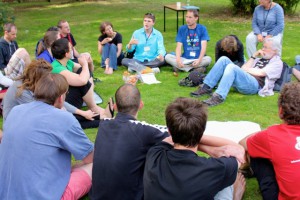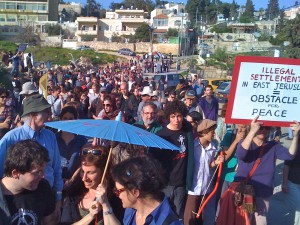Bjarne argues that while we don’t need a planned economy, we do need an economy that takes people into account and acts fairly and morally. I tend to agree, but I am not sure how this is supposed to look. I would argue that global fair trade must come along with a strong domestic safety net, or not at all, and that financial exploitation is only one aspect of a bigger problem.
Unintended consequences of fair trade
What were to happen if every developed country in the world simultaneously passed good labor laws that applied not only to workers in the country, but also to workers employed directly or indirectly by companies in that country? In other words, what if the first world would suddenly apply the same standards when it came to those it employs in the third world as it does to those employed domestically?
Like any change in a complex system, this would have all kinds of different consequences, some of them unintended. For one, this would, with 100% certainty, mean that almost all goods and services sold in the first world would become a lot more expensive to produce, and somewhat more expensive to consume. This would hurt the middle and lower class hard: they would no longer be able to afford to consume nearly as much as before, at least in the short term. In the long term, this would give companies in the first world less of a reason to employ people in the third world, meaning more people in the first world would have jobs. This would, in turn, also mean that the first world would produce more goods and services, increasing exports. So I imagine it might actually balance out eventually. (I’m trying to think like an economist here – tell me if it’s working.)
A conclusion is simply where you stopped thinking
So in the short term, making world trade fair would harm everyone in the first world but the rich – massively. This is, of course, a bad thing. Should this be our conclusion then, that fair trade is a luxury and forcing it upon society would punish “our own” poor? No, of course not, that would be near-sighted. Rather, I think fair trade is a good argument for social solidarity and a strong safety net in the first world.
After all, there is an enormous amount of wealth in the first world. The existence of poverty is not a force of nature but an aspect of our economic system. With tools as simple as progressive taxation and a basic income guarantee, we could tweak our system to protect all individuals in society from the chaos of post-industrial life. And if we can make sure that even a large, across-the-board spike in the price of goods would not harm anybody too much, we can afford to trade fairly with the developing world.
In other words, global solidarity and domestic solidarity are interconnected. Only enforcing fair trade would harm the first-world poor in the short run. Only guaranteeing economic security in the first world would come at the continued cost of the third-world poor. In fact, presenting the two as separate could be seen as a subtle factor in why neither is terribly popular – if you really care about the basic rights and conditions of all people, why should you want to improve conditions for the poor at home but not elsewhere, or vice versa? But if we consider the two to be one package, one thing, inseparable, suddenly the parts all make sense.
Schooling the world for the wrong jobs – colonialism is alive, and kicking the third world in the face
But fair trade is not enough for the third world, either. The western corporate colonization runs much deeper than that.
This summer, at IDEC@EUDEC in England, I had the opportunity to watch a very difficult film, Schooling the World. What I learned is that what we know as conventional schooling in the west is being forced upon communities in the developing world which have no need for this form of education, nor for the content taught in it – essentially the same content as taught in the first world. Young people there are being trained for western jobs and academic careers where there are none, in communities which have their own way of life, requiring neither. The young people subsequently have no real choice but to move to big cities, where there is at least some chance of finding a job they are qualified for – but there there are still not enough modern jobs for everyone. Imagine being a young adult faced with the choice between poverty in the big city, where you have a chance of finding a job you are somewhat prepared for, and moving back to the countryside, where you might not even speak the language (as many schools forbid native languages and enforce the use of English and/or the state language) and would have to learn traditional crafts from scratch in order to be useful.1
Bringing “modern”, “high-quality” education to the developing world – often motivated by the best of intentions – is destroying cultures and forcing young people to either work for first-world companies or actually move to the first world. And if this is not stopped, universal fair trade could be a disaster for the third world as well, at least until developing economies are able to offer the jobs domestically that “modern” education requires for its graduates.
Exploitation of low or non-existant standards in the developing world is in the end only one facet of what western colonialism has become in the “post-colonial” era. Although the colonies are gone and the developed world’s mindset has shifted, it has not changed completely. In our arrogance, we help the developing world mainly in ways that help us more, and there are many, many fronts to fight on for a more just world, with freedom for all. The past is never gone, no matter how much we wish it so, and we have to be curious, brave, and determined if we are to find and root out its poisonous remnants wherever they may be.
Footnotes
- It’s worth noting that radical democratic schools would not have the same effect, as their content is whatever the people present bring in – not a curriculum designed by someone from the city. [↩]









